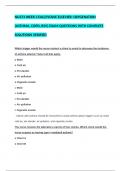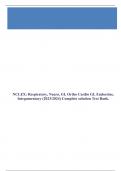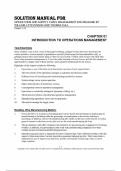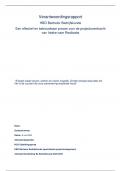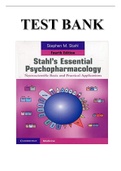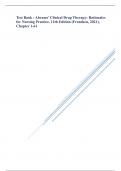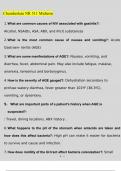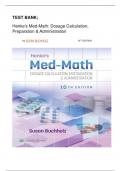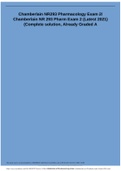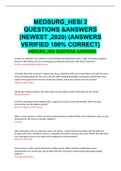Exam (elaborations)
NU373 WEEK 3 EAQ EVOLVE ELSEVIER: OXYGENATION (ASTHMA, COPD, RSV) EXAM QUESTIONS WITH COMPLETE SOLUTIONS VERIFIED
- Course
- Institution
NU373 WEEK 3 EAQ EVOLVE ELSEVIER: OXYGENATION (ASTHMA, COPD, RSV) EXAM QUESTIONS WITH COMPLETE SOLUTIONS VERIFIED Which trigger would the nurse instruct a client to avoid to decrease the incidence of asthma attacks? Select all that apply. o Mold o Cold air o Pet dander o Air pollution o Cig...
[Show more]
